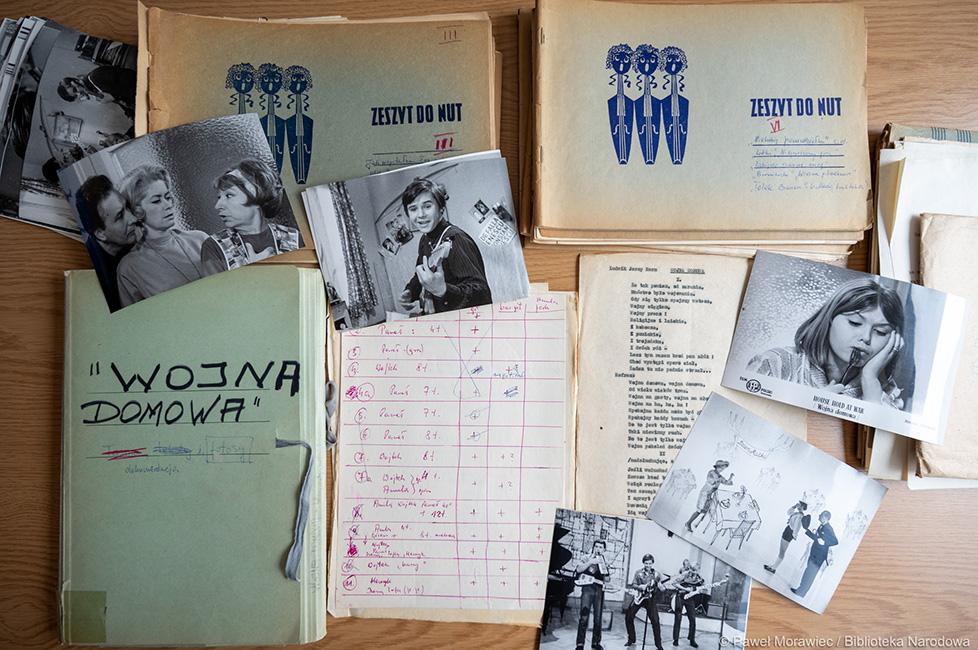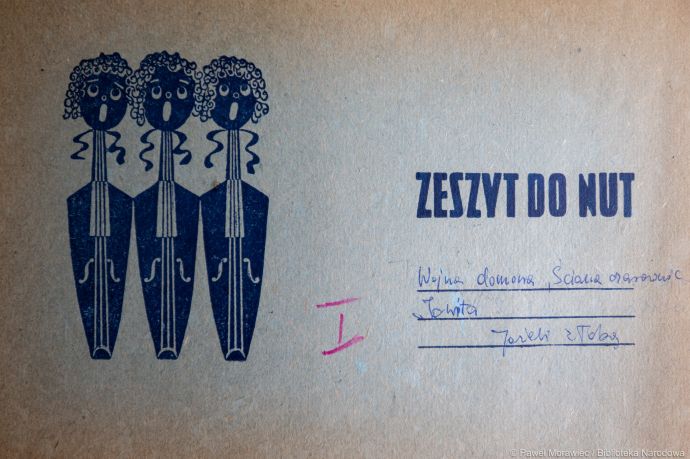Archive of Jerzy “Duduś” Matuszkiewicz donated to the National Library

The National Library has received an important new donation: the archive of Jerzy “Duduś” Matuszkiewicz, a pioneer of Polish jazz, saxophonist and outstanding composer of film music. Donated by his heirs, the materials primarily document Matuszkiewicz’s life and artistic work. They are also a valuable source for research into the development of the jazz movement in post-War Poland.
Particularly noteworthy are the musical manuscripts and the wealth of related working materials, including sketches for film scores, arranged in numbered notebooks, for such celebrated productions as Alternatywy 4, Czterdziestolatek, Janosik, Kolumbowie, Stawka większa niż życie, Wojna domowa, Nie lubię poniedziałku and Poszukiwany, poszukiwana. A wide range of supporting materials, including notes, scripts and annotated cue sheets, are organised in folders marked by the composer with the relevant titles.
The archive includes a wide range of biographical materials, including from Matuszkiewicz’s time in Lviv: personal documents, ID cards, certificates, contracts for compositions, press clippings, commemorative diplomas and congratulatory letters. Private and professional correspondence is also present.
In addition, the collection includes an extensive array of photographs capturing the vibrant world of jazz from the 1950s onwards – from performances by Matuszkiewicz’s legendary group Melomani to concerts by the Traditional Jazz Makers and the Polish All Stars – as well as moments from his family life. A significant part of the archive is Matuszkiewicz’s own photographic work, reflecting his fascination with different photographic techniques, alongside images by acclaimed photographers such as Marek Karewicz and Zofia Nasierowska.
The donated audiovisual materials include archival radio recordings on reel-to-reel tapes and a rich collection of vinyl records and CDs – Matuszkiewicz’s personal audio library – as well as amateur video recordings of concerts on VHS cassettes and DVDs of films and television series featuring his music. Among the more unusual items are a set of large film reels, thought to hold German wartime newsreels.
Finally, there are printed ephemera, concert programmes and brochures from various musical events, along with personal items – including two flat caps, a pair of glasses, festival badges and award statuettes.
The archive will now undergo professional conservation and, once catalogued, will become part of the Polish Jazz Archive. It will join the legacies of Krzysztof Komeda, Jan Borkowski, Benon Hardy, Zbigniew Seifert and other leading figures from Poland’s jazz community.
